Key Takeaways
- Genetic tests can identify over 270 health risks in dogs and cats, helping ensure healthier pets.
- Responsible breeders provide health clearances and genetic test results for both parents and offspring.
- Common genetic tests for dogs include those for hip dysplasia, heart conditions, and certain hereditary diseases.
- Embark and The Kennel Club DNA Testing Services offer reliable and comprehensive genetic testing for dogs.
- Prospective pet owners should always verify a breeder’s health testing claims before purchasing a pet.
Why Health Screens and Genetic Tests Matter for Purebred Pets
When it comes to our furry companions, ensuring their health and well-being is a top priority. Purebred dogs and cats, often prized for their specific traits and characteristics, are no exception. However, these pets can be prone to certain genetic disorders due to selective breeding practices. This is where health screens and genetic tests come into play.
Genetic tests are crucial because they help identify potential hereditary health issues before they manifest. For breeders, this means they can make informed decisions about which animals to pair, ultimately leading to healthier litters. For pet owners, it provides peace of mind knowing their new family member is less likely to suffer from preventable genetic conditions.
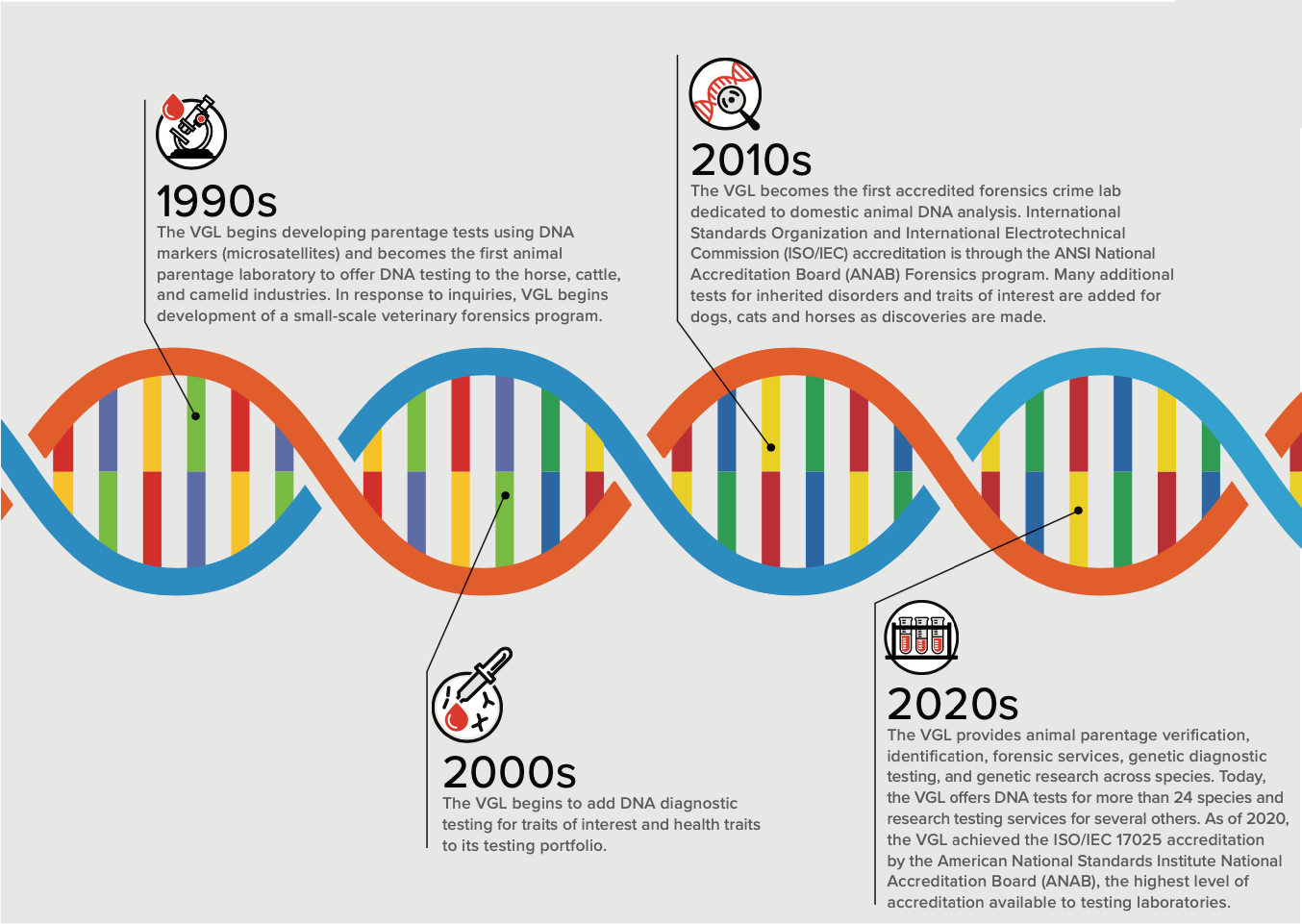
“What Genetic Testing Can and Can’t Tell …” from synergy.vetmed.ucdavis.edu and used with no modifications.
Understanding Genetic Health Risks in Pedigree Pets
Pedigree pets, with their well-documented lineage, are often susceptible to specific genetic disorders. Each breed has its own set of common health concerns, making breed-specific genetic testing essential. For example, hip dysplasia is prevalent in larger dog breeds like German Shepherds and Golden Retrievers, while Persian cats may be prone to polycystic kidney disease.
Understanding these risks allows breeders and owners to take preventive measures. With the right knowledge, you can choose a pet that fits your lifestyle and is less likely to encounter serious health issues. It’s about making informed choices for the well-being of the animals and the happiness of their families. For more insights, explore the tests reputable breeders perform with veterinarians.
Impact of Irresponsible Breeding Practices on Pet Health
Irresponsible breeding practices, such as breeding without considering genetic health, can lead to a myriad of health issues in pets. These practices often prioritize appearance over health, resulting in animals that may look the part but suffer from chronic health problems. To ensure healthier pets, it’s crucial for breeders to conduct breed-specific health tests.
Breeding without genetic testing increases the risk of passing on hereditary diseases. This not only affects the individual animal’s quality of life but also places a financial and emotional burden on the pet owners. Therefore, choosing a breeder who prioritizes health testing is crucial for ensuring the long-term health of your pet.
Why Responsible Breeding is So Important
Responsible breeding is the cornerstone of producing healthy pets. It involves careful selection of breeding pairs based on their genetic health, temperament, and physical attributes. By doing so, breeders can reduce the incidence of genetic disorders and improve the overall health of the breed.
Besides that, responsible breeders provide transparency about the health testing of their animals. They are willing to share genetic test results and health clearances with prospective pet owners, building trust and ensuring that the new pet family is well-informed. This level of responsibility not only benefits the pets but also enhances the reputation of the breeder.
Essential Health Screens and Genetic Tests for Dogs and Cats
When considering a purebred dog or cat, it’s essential to be aware of the necessary health screens and genetic tests. These tests vary by breed and are designed to detect the most common hereditary issues specific to each breed. Knowing which tests are crucial for your chosen breed can help you make informed decisions and ensure the health of your future pet.
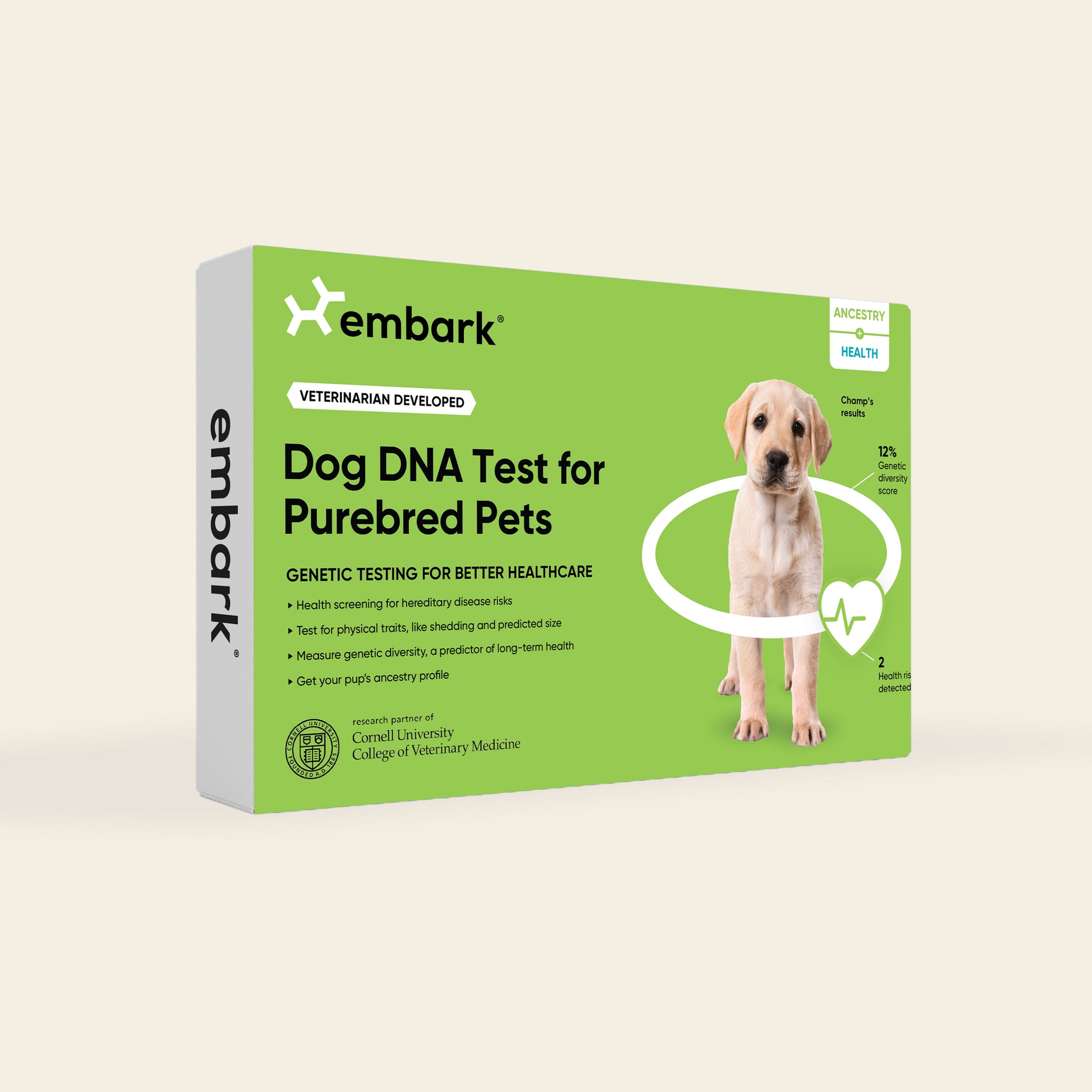
“Embark Dog DNA Test Kit: Dog Breed …” from shop.embarkvet.com and used with no modifications.
Common Tests for Pedigree Dogs
For dogs, genetic testing is a key component of responsible breeding. Some of the most common tests include:
- Hip and Elbow Dysplasia: X-rays are used to detect these joint abnormalities, which are common in larger breeds.
- Heart Tests: Breeds like Boxers and Cavalier King Charles Spaniels often require cardiac evaluations to rule out congenital heart defects.
- Eye Exams: Regular ophthalmologic exams can identify hereditary eye conditions such as cataracts or progressive retinal atrophy.
- Breed-Specific Genetic Tests: Many breeds have specific tests, like the DNA test for degenerative myelopathy in German Shepherds.
By conducting these tests, breeders can ensure they are not passing on debilitating conditions to future generations, thus promoting the overall health and longevity of the breed.
Questions to Ask Breeders and Rescue Organizations
When considering adding a new furry friend to your family, it’s essential to ask the right questions to ensure you’re making a responsible choice. Whether you’re dealing with breeders or rescue organizations, these questions will help you gauge their commitment to pet health and ethical practices.
Health Screening Protocol for Breeding Pairs
One of the first questions you should ask is about the health screening protocol for breeding pairs. A reputable breeder should conduct thorough health screenings and genetic tests on both the sire and dam. This ensures that they are not carriers of hereditary diseases that could be passed on to the offspring.
Ask for specific details on the types of tests performed and request to see the results. Transparency is key, and a reputable breeder will have no problem providing this information. Additionally, inquire about how often these tests are updated, as regular screenings are necessary to maintain accurate health records.
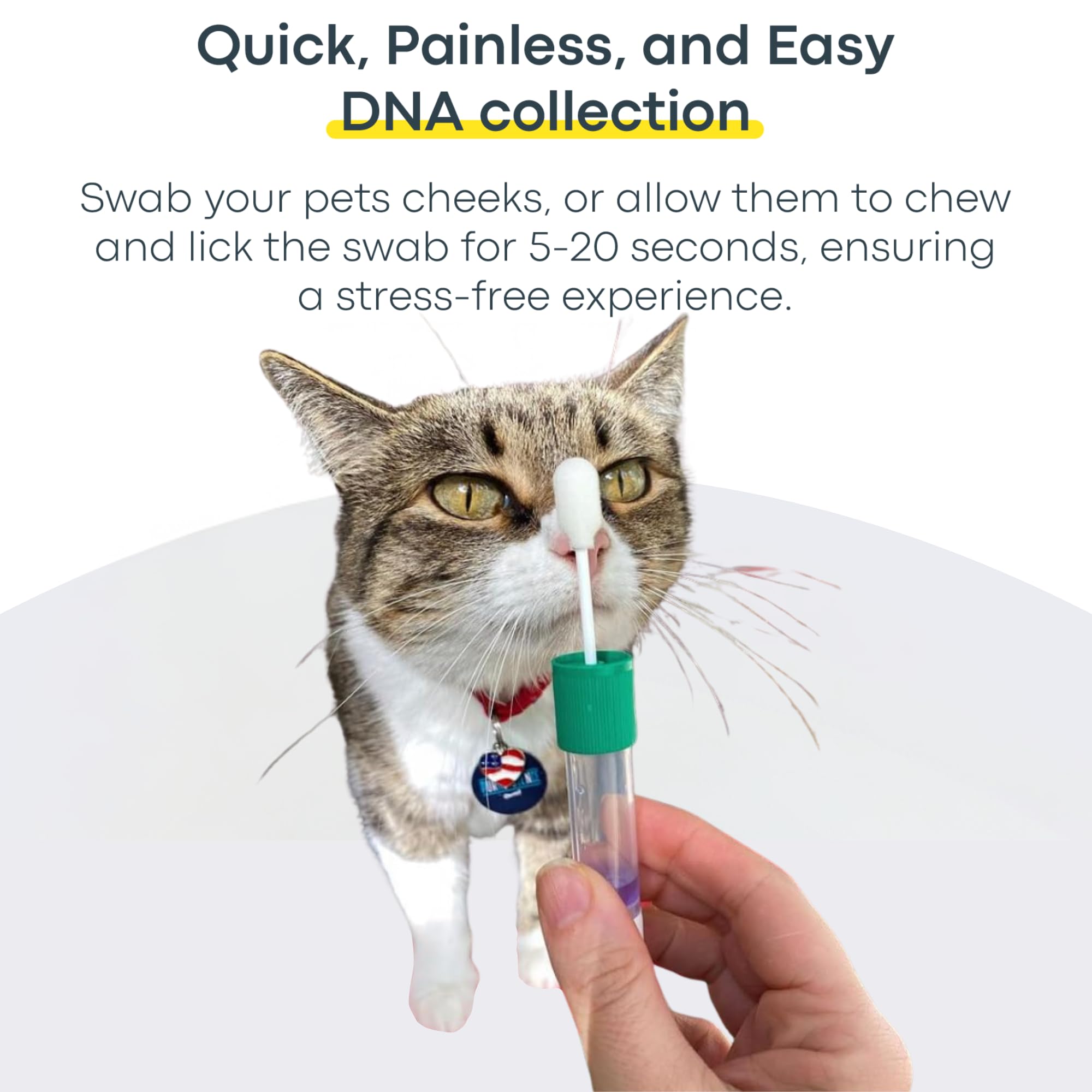
“Amazon.com : Basepaws Cat DNA Test Kit …” from www.amazon.com and used with no modifications.
Evaluating Puppies and Kittens: Required Tests
“For puppies, common tests include hip dysplasia screening and genetic tests for breed-specific conditions. Kittens often require tests for common feline diseases like FIV and FeLV.”
It’s crucial to understand the required tests for evaluating puppies and kittens. These tests ensure that the young animals are healthy and free from genetic disorders. For example, puppies from breeds prone to hip dysplasia should have their hips evaluated at an early age. Similarly, kittens should be tested for common viral infections like Feline Immunodeficiency Virus (FIV) and Feline Leukemia Virus (FeLV).
Moreover, breeders and rescue organizations should provide documentation of these tests, along with vaccination records and any other relevant health information. This documentation serves as a vital resource for new pet owners and veterinarians.
Here’s a table summarizing some common tests for puppies and kittens:
|
Animal |
Common Tests |
Purpose |
|---|---|---|
|
Puppies |
Hip Dysplasia, DNA Tests for Breed Conditions |
Identify joint issues and hereditary diseases |
|
Kittens |
FIV, FeLV |
Screen for viral infections |
Ensuring Access to Test Results and Health Documents
Access to test results and health documents is non-negotiable when acquiring a new pet. A trustworthy breeder or rescue organization will willingly share these documents, offering transparency about the animal’s health status. This information not only helps you make an informed decision but also assists your veterinarian in providing the best care for your pet.
Ensure that you receive copies of all health records, including vaccination history, genetic test results, and any other relevant medical information. These documents are crucial for tracking your pet’s health and planning future veterinary visits.
Understanding Breeder Certifications and Credentials
Another important aspect to consider is the breeder’s certifications and credentials. Reputable breeders often belong to recognized breed clubs or organizations that set high standards for breeding practices. These certifications indicate that the breeder adheres to ethical breeding practices and prioritizes the health and well-being of their animals.
Ask the breeder about their affiliations and any certifications they hold. Research these organizations to ensure they are reputable and have strict guidelines for breeders. This will give you confidence in the breeder’s commitment to producing healthy, well-adjusted animals. For more information on the types of tests breeders should perform, check out the tests reputable breeders perform with veterinarians.
Trustworthy Companies Providing Reliable Genetic Testing
Genetic testing is a powerful tool in ensuring the health of pedigree dogs and purebred cats. Several companies specialize in providing comprehensive and reliable genetic testing services. Choosing the right testing company is crucial for obtaining accurate and meaningful results. Learn more about tests reputable breeders perform to ensure the health of their animals.
Two of the most trusted companies in the field of genetic testing for pets are Embark and The Kennel Club DNA Testing Services. Both offer extensive testing options and are known for their accuracy and reliability.
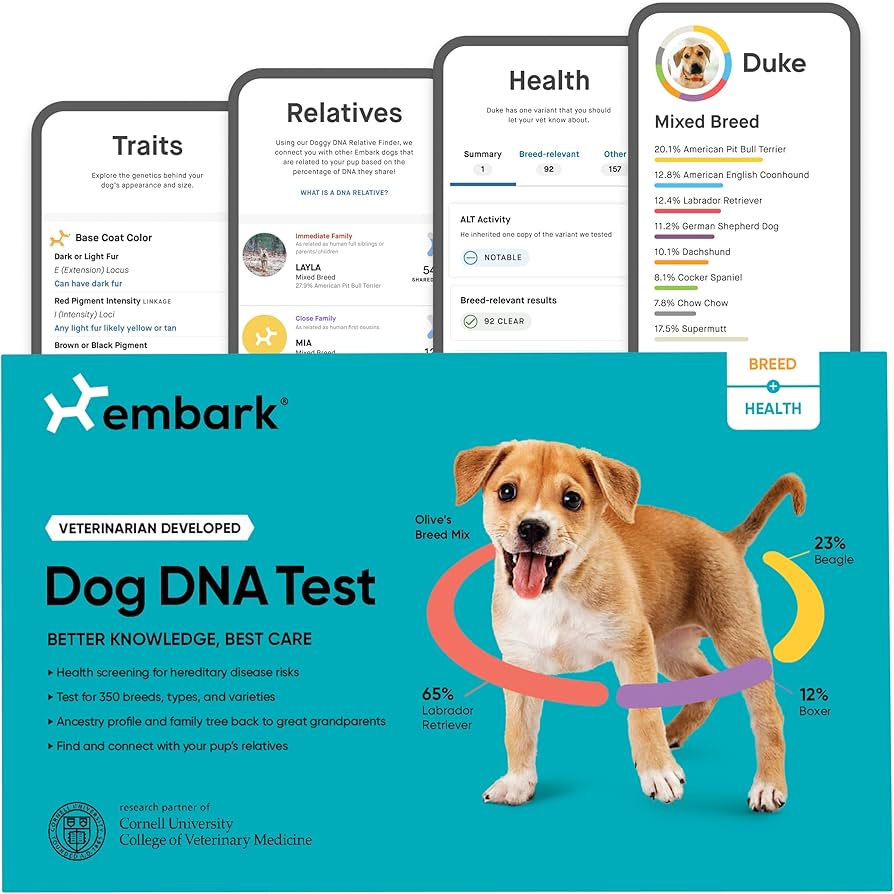
“Dog DNA Test …” from www.amazon.com and used with no modifications.
Embark: Comprehensive Testing for Dogs
“Embark offers testing for over 270 genetic health risks, making it one of the most comprehensive options available for dog owners.”
Embark is renowned for its comprehensive genetic testing services for dogs. Their tests cover over 270 genetic health risks, 55 traits, and the inbreeding coefficient (COI). This extensive range of tests provides a complete picture of a dog’s genetic health, allowing breeders and owners to make informed decisions.
Embark’s user-friendly platform makes it easy for pet owners to access and understand the results. They also offer excellent customer support, ensuring that any questions or concerns are promptly addressed. This makes Embark a top choice for those seeking thorough genetic testing for their dogs. For those interested in learning more about ethical breeding practices, consider exploring this ethical breeding guide for additional insights.
The Kennel Club DNA Testing Services
The Kennel Club DNA Testing Services is another reliable option for genetic testing. They provide breed-specific DNA tests that are essential for identifying hereditary conditions in pedigree dogs. Their tests are designed to meet the specific needs of each breed, ensuring that potential health issues are accurately identified.

“Cat DNA Test kit for 45 Genetic Health …” from www.amazon.com and used with no modifications.
Cat Genetics Testing: Selecting the Right Lab
- Check for labs that specialize in feline genetics.
- Ensure the lab offers tests for common feline diseases and genetic conditions.
- Look for labs with a reputation for accuracy and reliability.
- Consider customer reviews and testimonials to gauge satisfaction.
When it comes to genetic testing for cats, selecting the right lab is crucial. Look for labs that specialize in feline genetics and offer a comprehensive range of tests for common feline diseases and genetic conditions. Accuracy and reliability are key, so choose a lab with a strong reputation in the field.
Customer reviews and testimonials can provide valuable insights into the lab’s performance and customer service. By selecting a reputable lab, you can ensure that your cat receives the best possible genetic testing, leading to better health outcomes.
Conclusion: The Role of Testing in Pet Health
Genetic testing and health screens play a pivotal role in ensuring the health and well-being of pedigree dogs and purebred cats. By identifying potential genetic disorders early, breeders and pet owners can take proactive steps to prevent and manage these conditions, leading to healthier pets and happier families. Moreover, the transparency provided by responsible breeders in sharing health test results builds trust and ensures that new pet owners are well-informed about their pet’s health status. For example, when considering a Brussels Griffon, understanding the ethical breeding practices can be crucial.
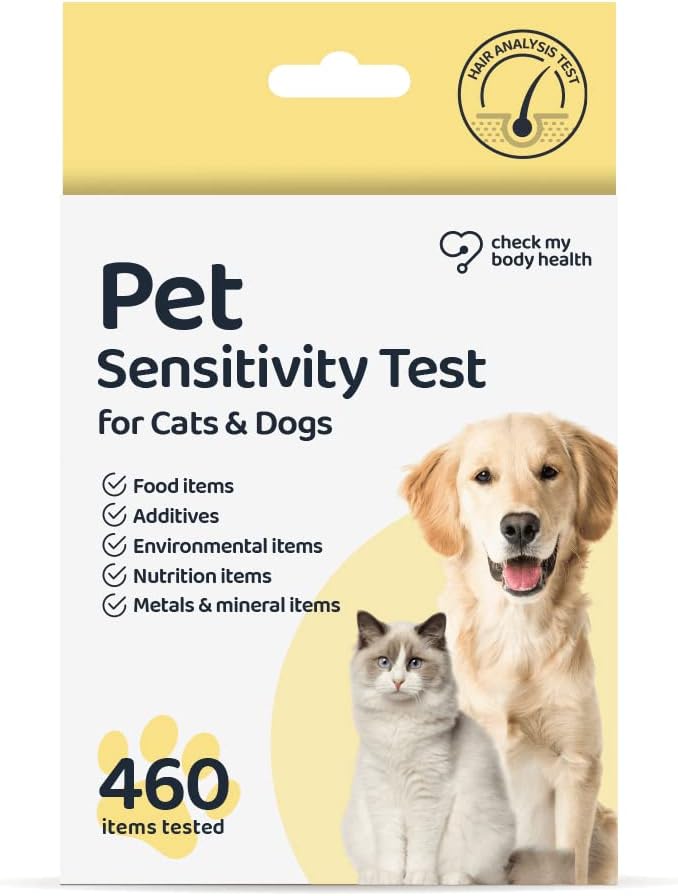
“Cat DNA Tests We Tried (KittyBiome Gut …” from www.ciudaddelosangeles.com and used with no modifications.
Promoting Better Health Outcomes Through Genetic Insight
Advances in genetic testing have revolutionized the way we approach pet health. By gaining insights into the genetic makeup of our pets, we can make informed decisions about breeding, healthcare, and lifestyle choices. This not only improves the quality of life for individual animals but also contributes to the overall health of the breed.
Responsible breeding practices, supported by comprehensive genetic testing, are essential for reducing the prevalence of hereditary diseases in pets. As we continue to learn more about genetic health, we can look forward to even greater improvements in the well-being of our furry companions.
Guidelines for Prospective Pet Owners
If you’re considering bringing a purebred dog or cat into your home, it’s important to do your homework. Research the breed’s common health issues and ensure that the breeder conducts the necessary genetic tests. Ask for documentation of health tests and certifications, and don’t hesitate to walk away if the breeder is unwilling to provide this information.
Remember, a healthy pet is a happy pet. By choosing a breeder who prioritizes health testing, you’re making a responsible choice that will benefit both you and your new pet for years to come.
Frequently Asked Questions
To help you navigate the world of genetic testing and pet health, here are answers to some common questions:
What are the most important genetic tests for dogs and cats?
For dogs, important genetic tests include those for hip dysplasia, heart conditions, and breed-specific hereditary diseases. For cats, tests for viral infections like FIV and FeLV, as well as genetic conditions like polycystic kidney disease, are crucial.
These tests help identify potential health issues early, allowing for timely intervention and management. For instance, understanding the care and personality traits of a Norwegian Forest Cat can be crucial in ensuring their well-being.
How do I verify a breeder’s health testing claims?
Always ask for documentation of health tests, including genetic test results and health clearances. Reputable breeders will have no problem providing this information. Additionally, check if the breeder is affiliated with recognized breed clubs or organizations that set high standards for breeding practices.
Transparency and willingness to share information are key indicators of a trustworthy breeder.
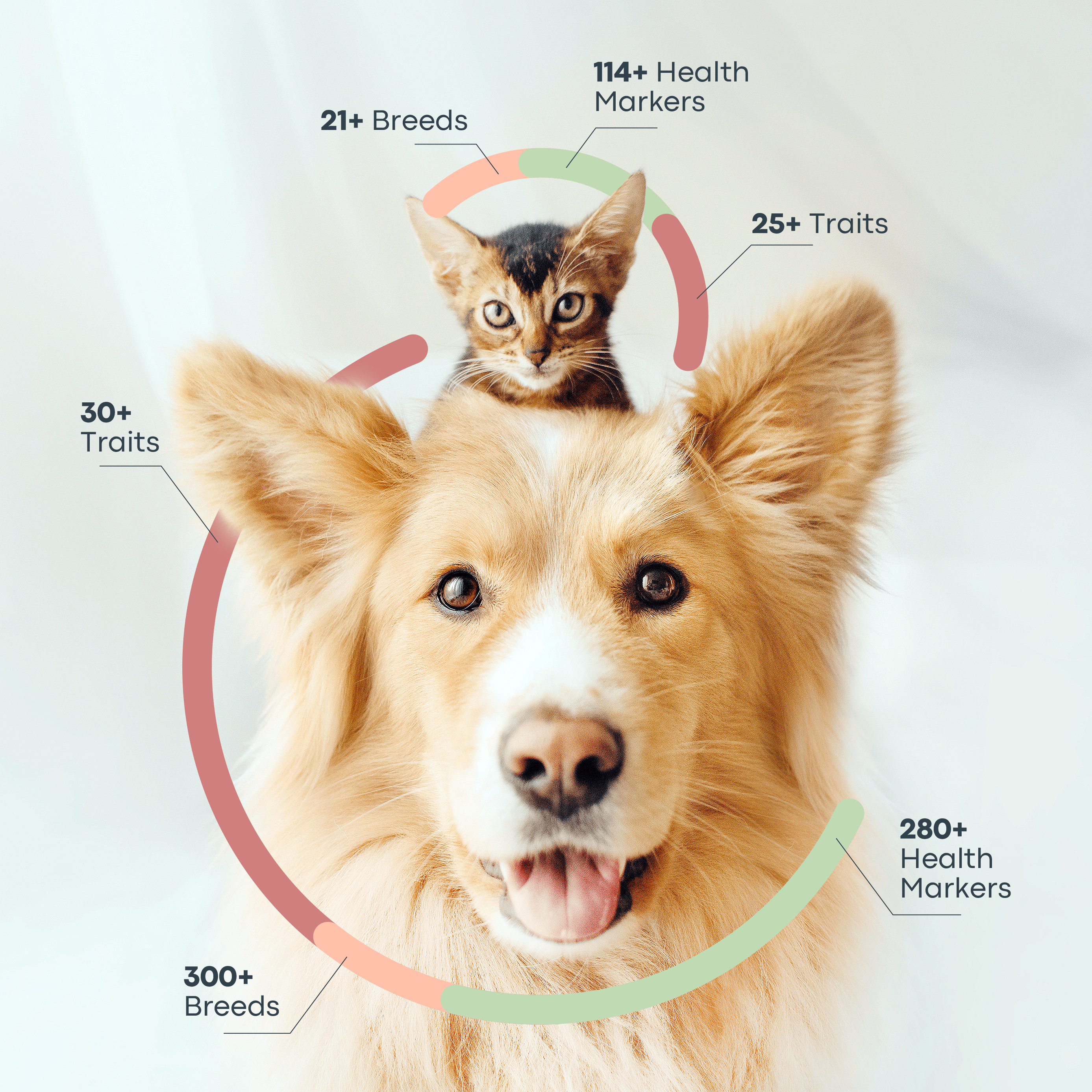
“DNA Tests for Cats & Dogs by Basepaws …” from basepaws.com and used with no modifications.
Are there any risks associated with genetic testing in pets?
Genetic testing itself is non-invasive and poses no risk to pets. However, it’s important to choose a reputable testing company to ensure accurate results. Misinterpretation of results can lead to unnecessary worry or incorrect breeding decisions.
Consult with your veterinarian to fully understand the implications of genetic test results.
How often should health tests be updated for breeding animals?
Health tests should be updated regularly, especially for breeding animals. Some tests, like hip and elbow evaluations, may need to be repeated as the animal matures. Genetic tests generally only need to be done once, as the genetic makeup of the animal does not change. For more information on specific breeds, you can refer to guides like the Bulldog adoption and health guide.
Why should I choose a breeder that conducts genetic testing?
Choosing a breeder that conducts genetic testing ensures that you are getting a pet with a lower risk of hereditary diseases. This not only contributes to the long-term health and happiness of your pet but also reduces the likelihood of costly veterinary bills down the line.
Moreover, supporting breeders who prioritize health testing encourages responsible breeding practices within the pet industry.
By making informed decisions and prioritizing health, we can all contribute to a future where our beloved pets live longer, healthier lives.


